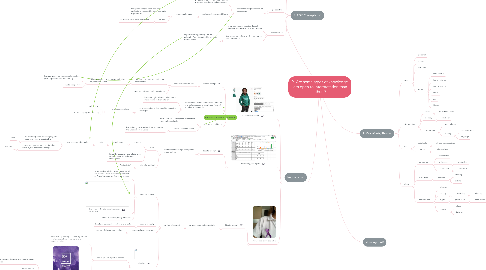
1. 2. TOK Concepts
1.1. objectivity
1.1.1. how quantitative knowledge is less open to interpretation
1.1.1.1. product of scientific methode
1.2. perspective
1.2.1. some knowledge depends on perspective
1.2.1.1. perspective achieved through unique experience and personal interactions
1.2.1.2. to do with identity and history
1.2.1.2.1. generational trauma
1.3. interpretation
1.3.1. knowledge communicated through symbols is more open to interpretation
1.3.2. the vaguer something is - the more open to interpretation
1.3.2.1. helpful when supporting a cause as ambiguity / or interpretability removes accountability
2. language
2.1. h&m racist sweater
2.1.1. Link to prompt
2.1.1.1. connotation of the text
2.1.1.1.1. due to a history of oppression and animalisation
2.1.1.1.2. racism = not open for interpretation
2.1.2. racist due to use of a black child to model a sweatshirt sporting the phrase “coolest monkey in the jungle
2.1.2.1. h&m has a global responsibility as a international fashion retailer
2.1.2.2. as a fashion brand they need to "push the envelope"
2.1.2.2.1. controversy creates hype
2.1.3. the history behind it
2.1.3.1. Animalisation = widespread elements of racist dehumanisation
2.1.3.2. Darwin - scientific racism
2.1.3.2.1. blacks being depicted as closer to apes on the Great Chain of Being
2.2. my biology lap report
2.2.1. Link to prompt
2.2.1.1. quantitate knowledge less open to interpretation
2.2.1.1.1. data
2.2.1.1.2. scientific method
2.3. my women's day pin
2.3.1. Link to prompt
2.3.1.1. symbols open to interpretation
2.3.1.1.1. symbol of support
3. 1. Key Words/Phrases
3.1. types
3.1.1. personal
3.1.2. shared
3.1.3. common
3.1.4. AOKs
3.1.4.1. mathematics
3.1.4.2. human science
3.1.4.3. natural science
3.1.4.4. ethics
3.1.4.5. arts
3.1.4.6. history
3.2. interpretation
3.2.1. belief
3.2.1.1. outside influence
3.2.2. memory
3.2.2.1. reliability
3.2.3. perspective
3.2.3.1. open minded
3.2.3.2. sharing
3.2.3.2.1. communication
3.2.3.2.2. language
3.3. open
3.3.1. debatable
3.3.1.1. different perspectives
3.3.2. open mind
3.3.2.1. inherent bias
3.4. others
3.4.1. comparison
3.4.1.1. relationship
3.4.1.2. differences
3.4.1.2.1. similarities
3.4.1.3. competition
3.4.1.3.1. enterprise
3.4.2. individuals
3.4.2.1. personal
3.4.2.1.1. memory
3.4.2.1.2. beliefs
3.4.3. communities
3.4.3.1. religious
3.4.3.2. country
3.4.3.2.1. nationality
3.4.3.3. digital
3.4.3.3.1. group chats
3.4.3.4. passion
3.4.3.4.1. clubs
3.4.3.4.2. hobbies
